Are you traveling to Japan and need to know how to ask for the bathroom? Knowing basic phrases for everyday needs, like finding the bathroom, can make your trip much smoother. In this guide, we’ll explain how to say “bathroom” in Japanese, alternative terms, and practical phrases for different situations.
How Do You Say “Bathroom” in Japanese?
In Japanese, the most common term for “bathroom” is Toire (トイレ), which comes from the English word “toilet.” This term is widely understood and used in everyday conversations. Another polite term is Otearai (お手洗い), which means “restroom” or “washroom.” However, it is important to note that in Japanese, the term “bathroom” (バスルーム) typically refers to a place where one takes a bath, such as a personal or hotel bathroom. If you’re looking for a restroom, it’s better to use “Toire” or “Otearai” to avoid confusion.
When in doubt, “Toire wa doko desu ka?” (トイレはどこですか?) is a simple and polite way to ask, “Where is the bathroom?”
Toilet(トイレ)↓
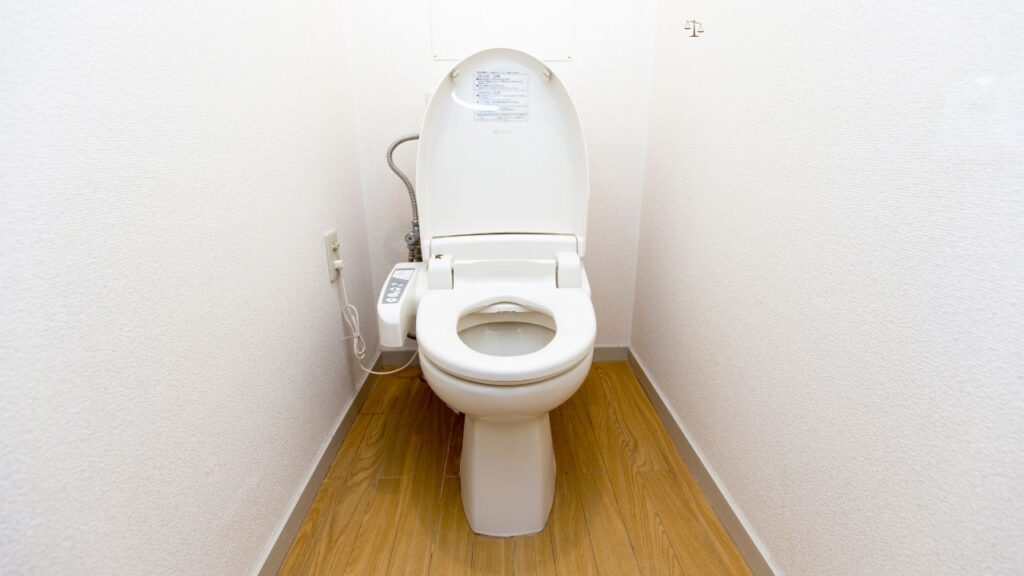
Bathroom↓
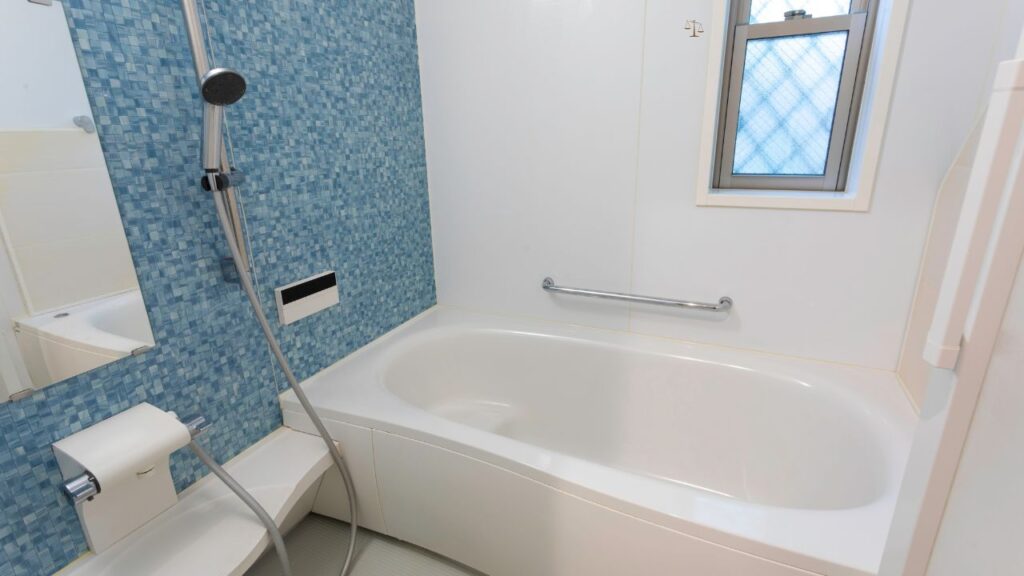
Variations of “Bathroom” in Japanese
Japanese has several terms for “bathroom,” depending on formality and context. Here are the most common variations:
Casual Term: Toire
Toire (トイレ) is the most common term and is suitable for casual situations, such as when talking to friends or asking for directions in a public place.
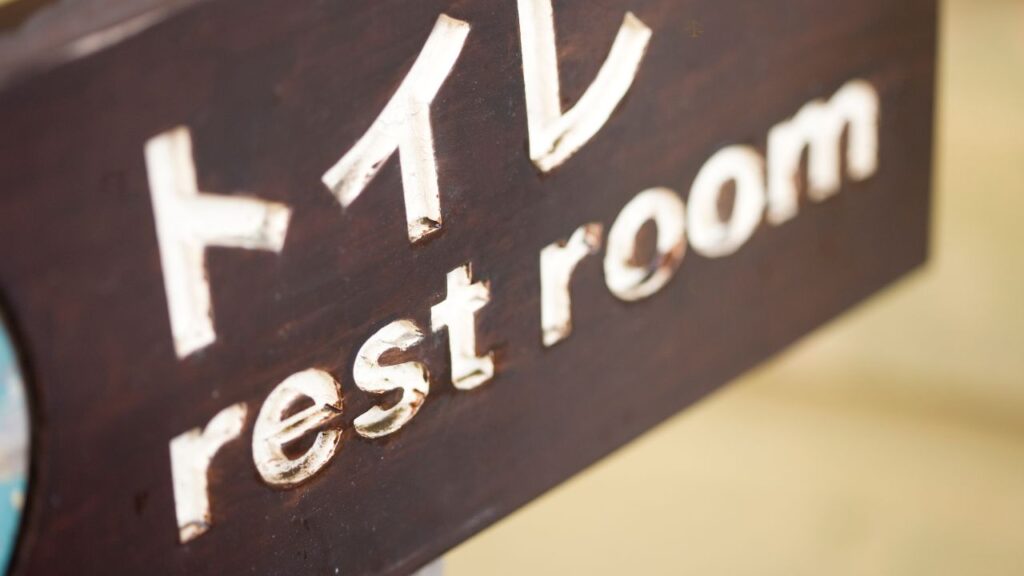
Polite Term: Otearai
Otearai (お手洗い) is a more formal term often used in restaurants, hotels, or other polite settings. It shows respect and is ideal when addressing someone you don’t know well.
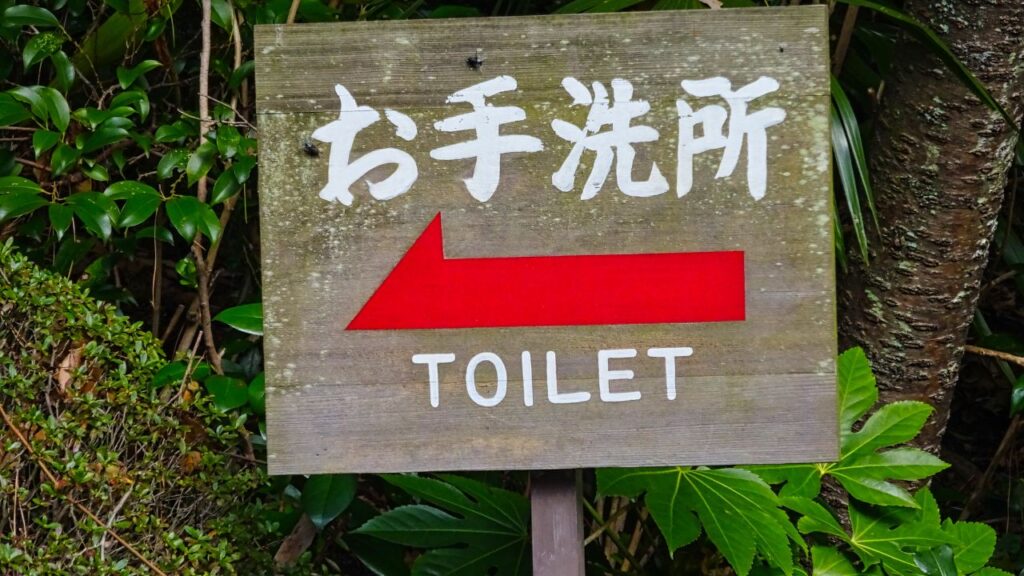
Traditional Term: Benjo
Benjo (便所) is an older term for “bathroom” and is less commonly used in modern conversations. You might encounter it in rural areas or historical contexts.
Practical Applications and Usage
Knowing how to ask for the bathroom in different settings can be incredibly helpful. Below are some practical phrases and tips:
Asking Politely
Use “Toire wa doko desu ka?” (トイレはどこですか?) to politely ask, “Where is the bathroom?” This phrase is appropriate in almost any context. However, some stores, such as convenience stores, may not allow customers to use their restrooms. In these cases, it is more appropriate to ask, “Toire wo tsukatte mo ii desu ka?” (トイレを使ってもいいですか?), which means “May I use the bathroom?”
Emergency Situations
In urgent cases, you can say “Toire!” with a slightly panicked tone, and most people will understand that you need help finding the bathroom quickly. If the situation is very pressing, you can also say “Moresou desu!” (溢れそうです!), which means “I’m about to have an accident!” This phrase conveys urgency and will likely prompt immediate assistance.
Cultural Tips
In Japan, bathrooms are generally clean and well-marked. Look for signs with トイレ or the universal male (♂) and female (♀) symbols. In some cases, you might also see symbols like a triangle (△) or inverted triangle (▽) to represent gender-specific restrooms. Public restrooms are often available in train stations, convenience stores, and shopping malls.
←male/female→
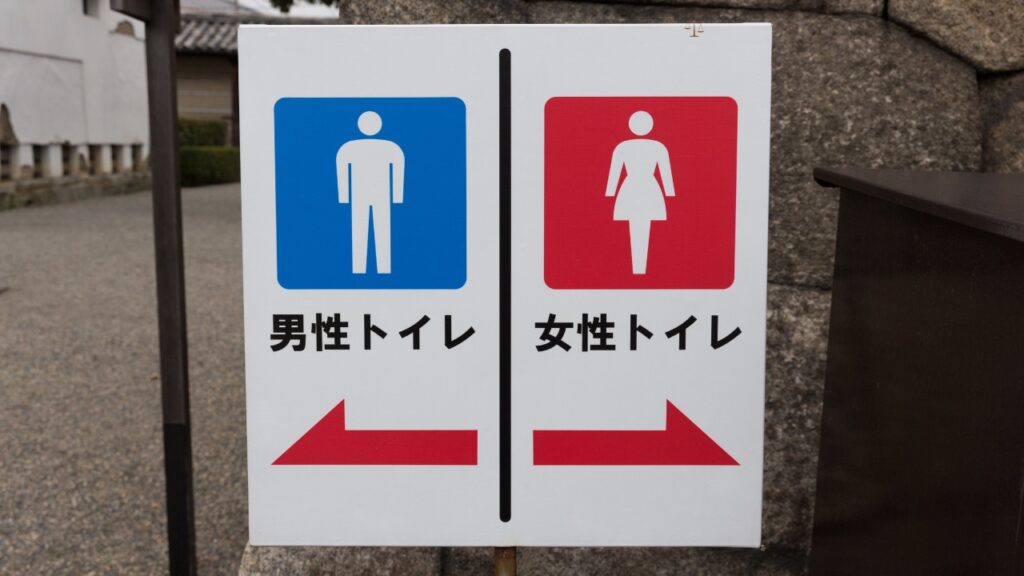
FAQs
Here are some common questions about asking for the bathroom in Japanese:
Can I use “Toire” in formal settings?
Yes, “Toire” is widely understood, but using “Otearai” is more polite in formal situations, such as in a nice restaurant or hotel.
What should I do if I can’t find a bathroom?
Ask a nearby person with “Toire wa doko desu ka?” or look for signs with トイレ or universal restroom symbols.
Is “Benjo” still used?
“Benjo” is an older term and is not commonly used today. Stick to “Toire” or “Otearai” for modern conversations.
Conclusion
Mastering basic phrases like “Toire wa doko desu ka?” can make your time in Japan much easier. Whether you’re in a casual or formal setting, knowing how to ask for the bathroom is a practical and essential skill for travelers.








